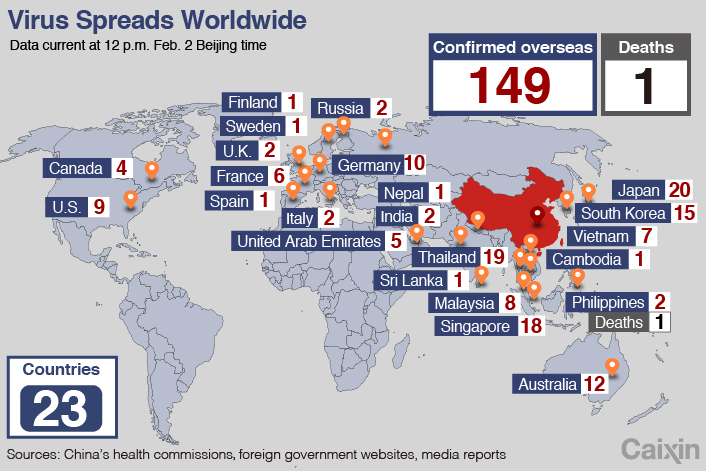Australia, U.S. Impose Travel Restrictions Amid Coronavirus Outbreak

 |
Australian Prime Minister Scott Morrison told reporters that travelers who have left or passed through the Chinese mainland will be denied entry as of Saturday, unless they are “Australia citizens, permanent residents and their immediate family, legal guardians and spouses.”
He said the government has raised its travel advice to “level 4,” telling Australians not to go to China due to “the escalating threat” of the virus.
Australia is one of the countries outside China hardest hit by the outbreak. Its number of confirmed cases hit at least 10 on Saturday.
On Friday, U.S. Secretary of Health and Human Services Alex Azar said at a briefing that U.S. President Donald Trump temporarily suspended “the entry into the United States of foreign nationals who pose a risk of transmitting the 2019 novel coronavirus.”
He declared that the coronavirus presents a “public health emergency” in the U.S. “Foreign nationals, other than immediate family of U.S. citizens and permanent residents, who have traveled in China within the last 14 days will be denied entry,” he said.
For American citizens returning to the U.S. who have been in Hubei province over the past two weeks, they will be subject to up to 14 days of mandatory quarantine “to ensure they are they are provided proper medical care and health screening.” The travel restrictions take effect 5 p.m. Sunday Eastern Standard Time.
The decision raised worries among Chinese citizens who work in the U.S. but have returned to China for the Lunar New Year holidays. A Chinese citizen surnamed Kong, who works in New York, told Caixin on Saturday that she cannot return to work after the holidays if the travel ban takes effect.
Others in the same situation are rebooking earlier flights to make it back in the U.S. before the restriction takes effect, she said.
The U.S. actions run counter to the World Health Organization’s recommendation that advised countries not to impose any travel or trade restrictions. On Thursday, the organization declared the outbreak a Public Health Emergency of International Concern (PHEIC) partly because human-to-human transmission of the virus had occurred outside China.
More countries have barred Chinese citizens from entering as the virus has spread globally. Singapore, North Korea and Russia all have closed their borders to travelers from China. Some countries are evacuating their citizens from the city of Wuhan, the epicenter the coronavirus outbreak.
Delta, American and United airlines have temporarily canceled all Chinese mainland flights. On Thursday, the U.S. Department of State increased the travel alert to “level 4,” which advises Americans not travel to China.
The U.S. Centers for Disease Control and Prevention (CDC) confirmed the seventh cases of the 2019-nCoV on Friday. It has also confirmed the first case of human-to-human transmission, making the U.S. the fourth country to record a case of the coronavirus spreading from person to person outside China.
The risk to the American public is low at this time, said CDC Director Robert Redfield at the briefing.
In response to the U.S.’ escalated travel alert, the spokesperson of China’s Ministry of Foreign Affairs, Hua Chunying, said on Friday that what the U.S. has done is “certainly not a gesture of goodwill,” as the World Health Organization has already recommended against travel restrictions.
Contact reporter Guo Yingzhe (yingzheguo@caixin.com) and editor Michael Bellart (michaelbellart@caixin.com)

- PODCAST
- MOST POPULAR




